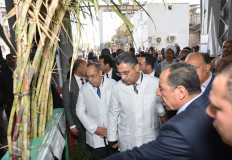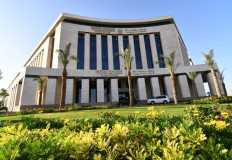The World Bank Group's Board of Directors has approved a $700 million loan to the Egyptian government under the Development Policy Financing (DPF) program to strengthen macroeconomic stability, achieve a growth path consistent with the green transition, and support competitiveness and improve the business environment to empower the private sector.
The DPF program is designed to
support the government's efforts to address short-term economic challenges, move
forward with structural reforms to create an enabling environment for private
sector growth, enhance macroeconomic stability, and facilitate the green
transition. The program will do this through a number of measures, including: expanding
renewable energy, improving efficiency in the electricity sector, and strengthening
corporate governance of state-owned enterprises.
The program is working to drive key reforms, including: strengthening the governance framework for state-owned enterprises and institutions by establishing a legal basis for state ownership policy; empowering the Competition Authority to combat anti-competitive mergers and acquisitions; enhancing local revenue mobilization by ensuring accurate assessment of payroll taxes; reducing electricity distribution network losses; improving climate adaptation and financial sustainability for the water and sanitation sectors; expanding renewable energy; and establishing a regulatory framework for a voluntary market for carbon trading.
The Development Policy Financing
program is part of a $6 billion three-year financing package that the World
Bank Group intends to provide to the government, which was announced in March
2024 to help stimulate private sector growth and job creation, promote
investment in human capital, support resilience to climate change, and strengthen
economic management.
It is the first of three
Development Policy Financing programs within that package, with two programs
scheduled to be implemented over the next two years.
Stefan Jimbere, Regional Director
for Egypt, Yemen and Djibouti at the World Bank, said: "Creating good,
sustainable jobs and building resilience to climate change are essential for
prosperity for citizens in Egypt, especially the poor and vulnerable. The
reforms supported by this program are an important step towards a more
sustainable and inclusive economy."
The new program is also
consistent with the World Bank's Country Partnership Framework for Egypt for
the fiscal period 2023-2027, which prioritizes private sector development and
benefits from the diagnostic studies conducted by the World Bank Group on
Egypt, including the private sector diagnostic study, the Climate and
Development Report, and Out of a total financing of $700 million, $200 million
is scheduled to be made available from one of the bilateral development
partners.
Development Policy Financing is aligned with Egypt's development priorities and national strategies, including: Egypt's Vision 2030, the state ownership policy document, the national climate change strategy 2050, and the "Nuwafy" program, the nexus between water, food and energy.





